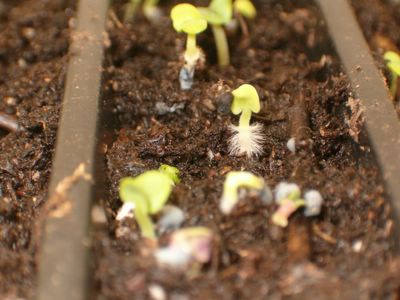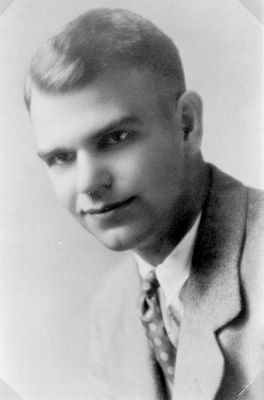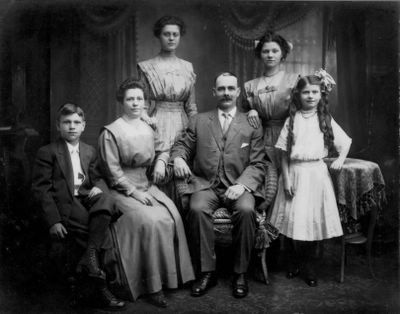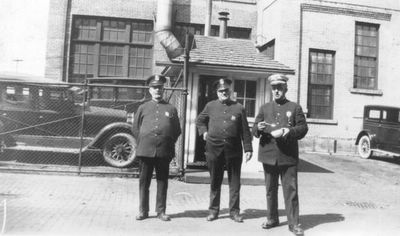Saturday's post generated some comments. An old friend called me a "curmudgeon". From the net comes a comment:
As a parent (and team manager) of two kids involved in Destination Imagination - another creative problem solving program - I can tell you that for many, many kids, what they get out of CPS is the opportunity to do it their way. It sounds as though you give your kids plenty of CPS at home, but I've experienced a number of parents who absolutely *cannot* step away and give their kids the room to test out their ideas. CPS is a learning experience for the parents, too!
So let me clarify. I am not against OM. I am all for creative problem solving. There was a subtle moment in last Saturday’s performance where they kids were forced to adlib and prolong their play. One of the adlibbing kids had played chess last year and had been so afraid of making a wrong move that he seldom finished a game. It was wonderful to see him dare to think on his feet.
What I am objecting to is a sort of tunnel vision parenting where being a parent replaces both the rights and responsibilities of being an adult. What I am advocating is creative problem solving that is integrated into everyday life.
Many parents avoid integrating creative problem solving into their kids' lives because it is messy and time consuming. Life's first bout with creative problem solving is supposed to happen just after birth: How do I get the milk out of Mom? The process of breast feeding involves much trial and error on the part of both baby and Mom. As time goes on each gets more experienced at what works and the baby learns ways to latch on efficiently and stimulate the mother's milk producing reflexes. But, alas, many moms find themselves to be too busy to provide this experience. I suspect that there may be an underlying reluctance to relinquish control of the situation. Parents, who may have originally envisioned a baby as the perfect complement to their already storybook lives, are horrified that parenthood might actually refashion the parents. This conflict ignites what turns out to be a long battle with their kids for control. In its ultimate manifestation you see parents arguing with their kids over ridiculously trivial issues and jumping in to micromanage so rudely that the kid seems like Gandhi on a sit down strike.
Two axioms come to mind, one I've learned as a parent and one I've learned as a casino dealer and student of human nature.
The first axiom is that you are always parenting. Every moment you spend with your child you are parenting, whether you are consciously thinking about parenting or not. Every moment you are reinforcing some behavior or failing to reinforce another behavior, just by the set of your jaw or whether or not you make eye contact. (Our kids are training us, too, but that is a topic for another day.) The old snippet of sarcasm, “Do as I say, not as I do!” is still in effect. We are constantly acting as examples for our kids, examples that carry much more weight than what we say. One of the best things we can do to become better parents is to ask ourselves on a daily basis what kinds of behaviors we reinforced today and what kinds of examples we have set.
My second axiom is perhaps a little more controversial. Thirteen years of playing games with adults has convinced me that most of what people do can be reduced to trying to win one sort of game or another. Standing in line in the bank, we are constantly evaluating which line will be quicker, even if we aren’t actually in a hurry. Shopping is a competitive event for many people, there are even those who less motivated by acquiring goods that they are about bragging about the deal they got. And of course parking is for many people a competitive challenge. We try to park as close as possible, except for those who try to play the other game and park where they think they are less likely to get dinged.
That was the set-up, now for the collision. What are kids actually learning when we drop them off at a competition, tell them to play fair and make us proud, when we are cheating at the parking game even as we speak? We can offer justifications (“I’m running late.”) or pass the buck (“Someone should be directing traffic out here.”) but what we are really teaching is that breaking rules is OK if following them is too inconvenient.
Having two teenage drivers on the road, I can tell you that we all start teaching our kids to drive when they are about six years old, when they are able to read road signs and compare the speed limit to the speedometer. When they have seen us break the law for 10 years already, we haven’t got a snowball’s chance of convincing them to toe the line.
One more theme is rattling around my head, and was bouncing around as we wandered through OM competition. It’s the Newsweek article from a February 21, the Front page article about the new book Mommy Madness. The author Judith Warner describes professional women who are undone by the demands of mothering:
Once my daughters began school, I was surrounded, it seemed, by women who had surrendered their better selves--and their sanity--to motherhood. Women who pulled all-nighters hand-painting paper plates for a class party. Who obsessed over the most minute details of playground politics. Who--like myself--appeared to be sleep-walking through life in a state of quiet panic.
Although Warner describes the demands of motherhood to be out of control, it looks to me like the mothers themselves are out of control in their attempts to micromanage their children. Parenting itself may always have been something of a competitive event, but now it is an occasion to prove oneself as a shopper, tutor, logistics analyst, and to moan about how much we have done for our kids at every opportunity.
Kids thirst for control of their lives, yet competitive parenting demands a clean house, cute clothes, and an endless stream of activities to brag about. It demands that kids hurry up, not make messes, do things our way. It demands that kids sacrifice their childhood in the parents’ quest for a story book life.
Being kid-centered parents requires us to become better people, perhaps much better people that we think we are capable of being. Raising kids who can make their own choices requires us to
let them fail, even if that failure embarrasses us as their parents. We have to be brave, and mindful, enough to consider not what people will say about us today but what life lessons our kids will glean from losing their homework, being too broke to buy a new prom dress, or spending the day in the principal’s office.
But, and this is the cool part, our love for our kids has the power to change us, bit by bit, into better, braver, wiser people. Remember the old Disney movie of Snow White? As kids, it seemed that Snow White was the one who was lucky at love. She found her Prince Charming and lived happily ever after. If you watch it again as an adult, you may see things differently. The seven dwarves are locked onto a ho-hum life. They slave in the mine. They sing the same songs every day. Even their personalities are one dimensional and so static that their personalities have become their names: Sleepy, Grumpy, Dopey…
Then one day they come home and find a surprising, beautiful creature who needs their love and protection. Their lives are changed, in ways that they did not choose, cannot control, and in ways that force them to become more than what they thought they could be. They are truly the lucky ones. The seven dwarves are the ones who found the really precious sort of love, the sort of transforming love that our kids offer to us on a daily basis, if we will only stop, look into their eyes, and accept it.




